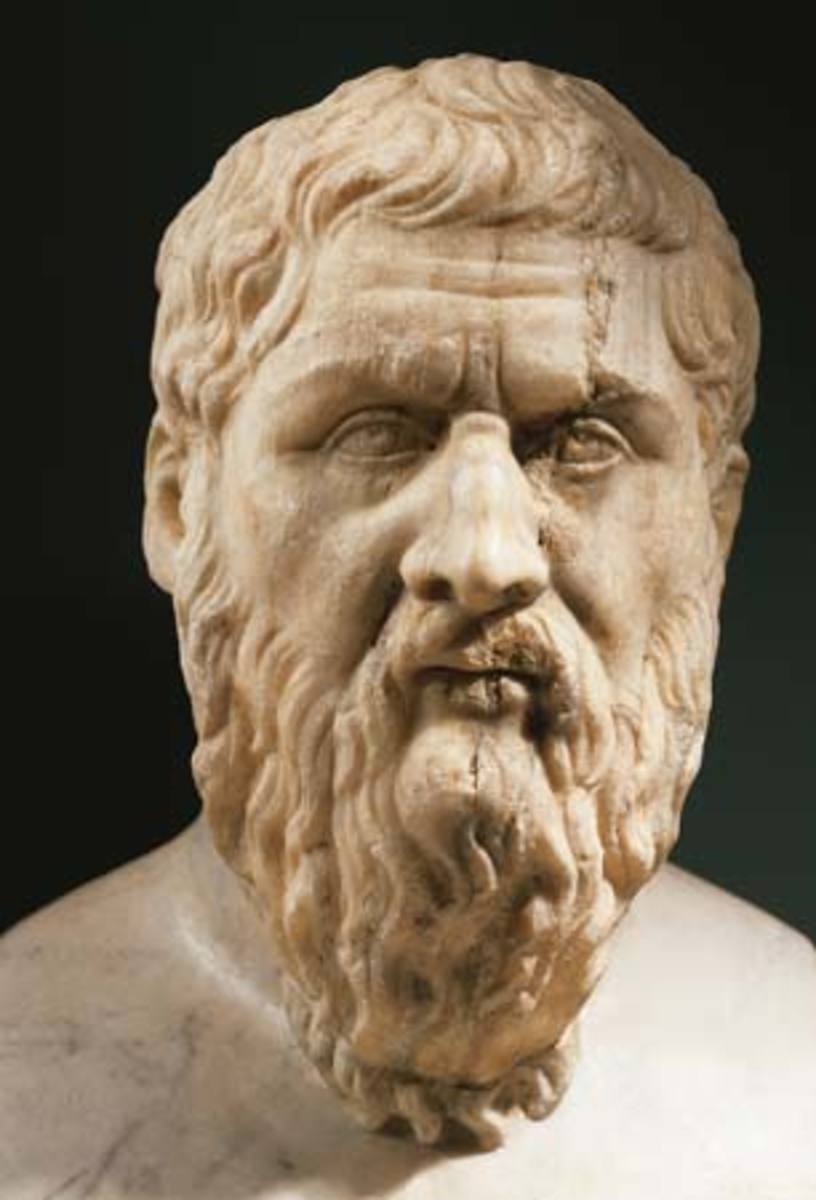- HubPages»
- Education and Science»
- History & Archaeology»
- History of the Modern Era
Enlightenment Views of Human Rationality

“I am inclined to believe Mr. Hobbes, that the state of nature is a state of war; but thence I conclude human nature not rational, if the word reason means common sense, as I suppose it does” (146). The previous words, written by Lady Mary Wortley Montagu in a letter to Alexander Pope, illustrate the preoccupation of Enlightenment Europe with the ability of humankind to reason and its resulting effects on the functions and malfunctions of human society. Although many of the most prominent writers of the Enlightenment are linked by their criticism of European practices and beliefs, their prognoses for the future of society varied widely, from Montagu’s general pessimism and Jonathan Swift’s merciless ridicule to the perhaps foolishly optimistic rhetoric of Denis Diderot and the Marquis de Condorcet. Although in their letters, essays, fiction, and satire, each of these authors applied a prescription of harsh, well-reasoned scrutiny towards the curing of society’s ills, they all entertained differing levels of hope for a future in which the “superstitions” and “prejudices” impeding the reasonable running of human affairs would or could ever be corrected.
In 1716, Lady Mary Wortley Montagu accompanied her husband Edward to his newly assigned ambassadorial post in Turkey. Her account of the journey, as presented in numerous letters to English notables, objectively praised and criticized the different cultures that she encountered, evaluating each largely on the basis of the logically deduced merit of their traditions, rather than on that of the author’s previously established prejudices. In viewing foreign societies with no predetermined concept of the worth of their traditions, Montagu revealed new alternatives to English customs and was able to objectively judge her own culture in comparison to that of others.
Although Montagu did not herself engage in the apparently common Austrian custom of extramarital affairs and personally objected to the bawdiness of German comedy and the confinement of Turkish women (142-3, 148), she found beauty in Arabic poetry and appreciated very much the well-paved roads of Holland and the sumptuary laws of Nuremburg (148, 139-40). Perhaps most notably, Montagu saw concrete good in the Turkish practice of “ingrafting” patients with weak strains of smallpox as a means of immunization, to the point where she had the operation performed on her own son (153). While her ability to see good in a range of foreign societies indicates open-mindedness and a degree of optimism about the potential of human beings to develop beneficial practices, Montagu’s writing also betrays a pronounced lack of faith in the potential of humankind for change or improvement.
While Montagu favored the idea of introducing the smallpox vaccination to England, she doubted that she “knew any [doctor] that I thought had virtue enough to destroy such a considerable branch of their revenue for the good of mankind” (153). While humankind would doubtless benefit from the eradication of a potentially fatal or disfiguring scourge, doctors, in Montagu’s eyes, were more likely to be influenced by self-serving greed than self-sacrificing altruism. Her pessimistic view on the general character of people is also revealed in her wry comment, probably ironic to God-fearing Christians of the time, that “Turkish ladies don’t commit one sin the less for not being Christians” (150).
To Montagu, human nature was too flawed, selfish, and irrational for one to reasonably expect swift or easy improvements in the state of the world. Although she lamented violence and injustice, writing that “nothing seems to be plainer proof of the irrationality of mankind… than the rage with which they contest for a small piece of ground, when such vast parts of fruitful earth lie quite uninhabited” (146), she wrote almost dismissively of the possibility of change. Even though alternatives to bloody combat were, to Montagu’s view, readily available, she did not expect to see them exercised, writing simply that humankind was too set in its ways, and that “custom has now made [war] unavoidable” (146).
While Mary Wortley Montagu may have been resigned to human vice and irrationality, Jonathan Swift attacked it viciously. Although his essays indicated a deep cynicism about the selfishness and irrationality of humankind, they reacted to these vices with ridicule rather than resignation, exposing and attacking them through exaggeration, often to the point of absurdity. No societal wrinkle or pore was safe from Swift’s metaphoric magnifying mirror. When Swift proposed, in his famous satirical essay “A Modest Proposal,” that the children of poor Irish mothers be butchered for meat in order to prevent them “from being a burden to their parents or country” and in order to make them “beneficial to the public” (1), his intention was to shock his readers and expose, through exaggeration, the inhumane treatment that the Irish endured under British rule. Although Swift was obviously pessimistic about the Irish situation, lamenting the lack of initiative on the part of the British to enact more reasonable reforms than his own cannibalistic suggestion and bitterly asking that “no man talk to me of… expedients, ‘till he hath at least some glympse of hope, that there will ever be some hearty and sincere attempt to put them into practice” (6), his purpose was obviously to provoke change, as distant and unlikely as that change may have seemed.
Although both Montagu’s resignation to and Swift’s ridicule of human vice indicated a pessimistic view of human nature with little hope for pronounced improvement, the writings of French authors Denis Diderot and the Marquis de Condorcet each indicated a belief in natural human virtue and, particularly in the case of Condorcet, the potential for human improvement.
While scathingly critical of European society, Diderot’s Supplement toBougainville’s Voyage displayed a large degree of optimism about the character of human beings in their “natural” state, uncorrupted by the artifices of government and religion. Diderot is highly aware and deeply critical of the kind of human greed criticized by Montagu and Swift, and criticizes it himself through the words of an old Tahitian man, who mocks the Europeans for their claim to his shores, asking “If someday a Tahitian should land on your shores, and if he should engrave on one of your stones or on the bark of one of your trees ‘This land belongs to the people of Tahiti,’ what would you think?” (162). He paints the Europeans as unjust conquerors, arbitrarily y claiming land that does not belong to them, enslaving its people, and spreading amongst them the ills of disease and superstition, hitherto unknown to them.
However, if Diderot’s Europeans are brutish and unenlightened, his “noble savages,” the Tahitians, are precisely the opposite. Unencumbered by formal government and religious dogma, they live an idyllic life, guided not by the arbitrary dictates of authorities who “attach the name of ‘good’ to harmful actions or the name of ‘evil’ to harmless or useful deeds” (170), but merely by the dictates of their own consciences, their innate human sense of right and wrong. More truly free than the Europeans who apparently seek to benefit them through the spread of their supposedly superior culture, the Tahitians labor minimally and reproduce at will, without shame and in broad daylight (162, 164), and their lives are the better for it.
Diderot’s philosophy is perhaps best summarized in his introduction to his 1751 Encyclopedia, in which he writes that “All things must be examined, debated, investigated without exception and without regard to anyone’s feelings… We must ride roughshod over these barriers that reason never erected” (158). An Enlightened human was, to Diderot, much like his noble Tahitians, a human stripped all illusions and governed by nothing other than his reason, the most eminent and trustworthy possible guide to human affairs.
Sharing in this philosophy was the Marquis de Condorcet, who wrote in his essay “The Future Progress of the Human Mind” that there “will arrive the moment in which the sun will observe in its course free nations only, acknowledging no other master than their reason” (4). The most optimistic of the four authors, Condorcet saw the Enlightenment as the beginning of a period of steady improvements in the state of the human race, its freedom, and its ability to govern itself. “The energy, the real extent of the human intellect may remain the same,” wrote Condorcet, “but the instruments which it can employ will be multiplied and improved; but the language which fixes and determines the ideas will acquire more precision and compass; and… the methods by which genius will arrive at the discovery of new truths augment at once both the force and rapidity of its operations” (8). In Condorcet’s view of the future, the more humankind progressed, the greater became its potential for improving itself with more speed and efficiency. With what Condorcet saw as mankind’s eradication of superstition, improvement of reason, and consequential improvement of its circumstances already set in motion, the future of humankind was inevitably bright, in fact boundlessly so.
Although most writers of the Enlightenment stood united in their belief in human reason as the key to the betterment of mankind, they differed greatly in their expectations of humankind to utilize that reason. Their views ranged from acceptance of mankind’s folly as inherent, as seen in the letters of Mary Wortley Montagu, to Condorcet’s belief in an ultimate illustrious and rational destiny for the human race.
Sources
Caritat, Marie Jean Antoine Nicolas. “The Future Progress of the Human Mind.” 1794.
Montague, Mary Wortley, and Denis Diderot. The Enlightenment: A Brief History with Documents. Ed. Margaret C. Jacobs. Boston, MA: Bedford/St. Martin's, 2001.
Swift, Jonathan. “A Modest Proposal.” 1729.








